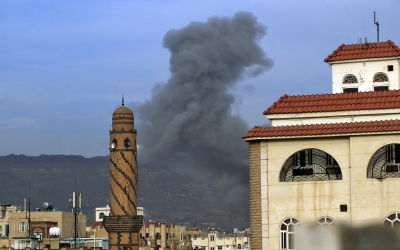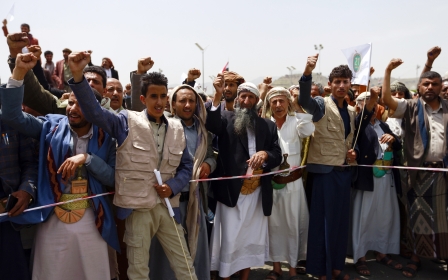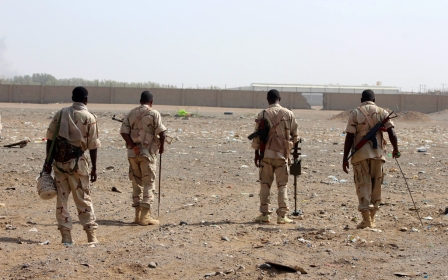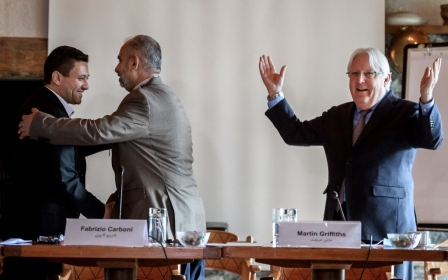Yemen's Houthis release two US hostages in exchange for about 200 fighters
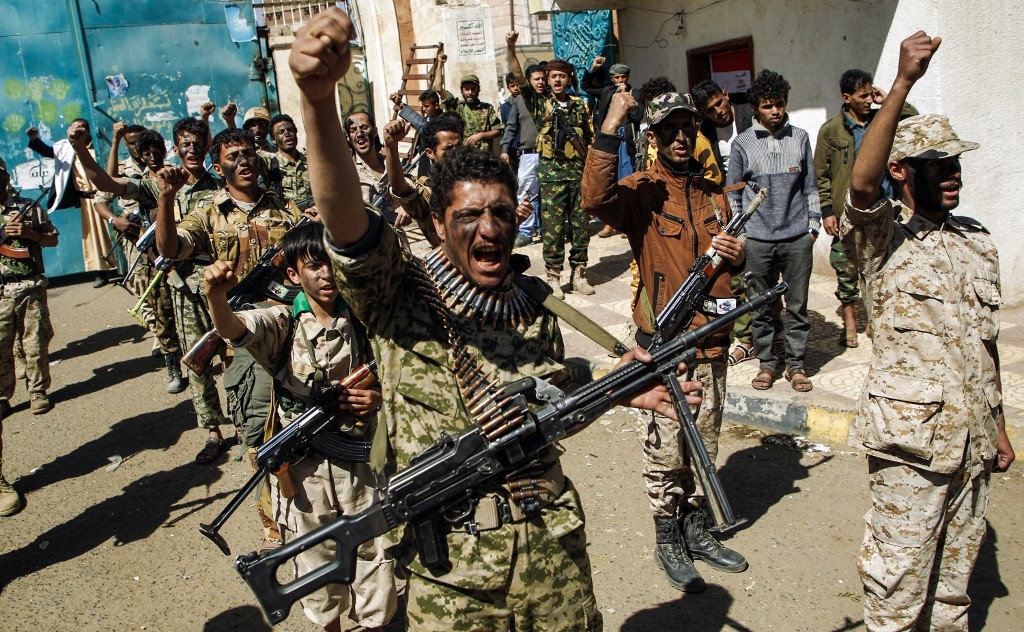
Yemen's Houthi rebels freed two American hostages on Wednesday in exchange for about 200 of the group's fighters and supporters detained in Oman, officials said.
The Wall Street Journal reported that Sandra Loli, a humanitarian worker that was held for three years, and Mikael Gidada, a businessman held for about a year, were released as part of the deal, according to Kash Patel, a deputy assistant to US President Donald Trump, who worked on the agreement.
In addition to the two Americans, the remains of a third, Bilal Fateen, were also being sent back to the United States. It was not known how long he was held by the Houthis or the circumstances surrounding his death.
The Journal said the individuals were transported out of Sanaa onboard a Royal Oman Air Force plane hours after about 200 Houthis were allowed to return to Yemen from Oman - where they had been held for some years.
The Journal added that the deal also included the delivery of medical aid to Yemen.
"The United States welcomes the release today of US citizens Sandra Loli and Mikael Gidada from Houthi custody in Yemen," National Security Adviser Robert O'Brien said in a statement.
"We send our condolences to the family of Bilal Fateen, whose remains will be repatriated as well. We extend our sincerest thanks to Sultan Haitham bin Tariq of Oman and King Salman of Saudi Arabia for their efforts to secure the release of our citizens."
Houthi spokesman Mohammed Abdulsalam tweeted that the Yemenis who returned to the capital, Sanaa, included people who had either been stranded in Oman or were casualties of war who had travelled there during UN-brokered peace talks held in Sweden in 2018.
"The United Nations did not bring [them] back" in line with the agreement reached, Abdulsalam said.
Pompeo blames Iran for humanitarian crisis
Yemen has endured years of chaos since the Houthis seized Sanaa in late 2014 and ousted former president Abd-Rabbu Mansour Hadi.
Saudi Arabia and its allies intervened in the country's civil war in March 2015, and have since carried out more than 20,000 air strikes in an effort to roll back the rebels, with one-third striking non-military sites, including schools, factories and hospitals, according to the Yemen Data Project.
The protracted conflict has triggered what the UN calls the "world's worst humanitarian crisis", with roughly 24 million people forced to rely on aid while 10 million are near famine.
The UN envoy to Yemen, Martin Griffiths, has for months been pushing all sides to agree on a ceasefire deal that would pave the way for broader talks to end the war.
The conflict has become a dividing issue in American politics, with Congress having voted twice to end US support for the Saudi coalition in Yemen, and Trump vetoing the measures.
Also on Wednesday, Secretary of State Mike Pompeo met in Washington with Saudi Foreign Minister Prince Faisal bin Farhan al-Saud.
Asked in a news conference about efforts to end the war, Pompeo placed blame on the humanitarian crisis squarely on the kingdom's regional rival Iran.
"We're doing everything we can to provide our diplomatic support as Saudi Arabia works to try and come to a better solution inside of Yemen," Pompeo said.
"The United States has been a significant donor, providing humanitarian resources for the region. It has just proven difficult when the Iranians direct the Houthis not to allow that food, those medicines, the much needed goods to get inside and be distributed inside of Yemen."
Middle East Eye delivers independent and unrivalled coverage and analysis of the Middle East, North Africa and beyond. To learn more about republishing this content and the associated fees, please fill out this form. More about MEE can be found here.


